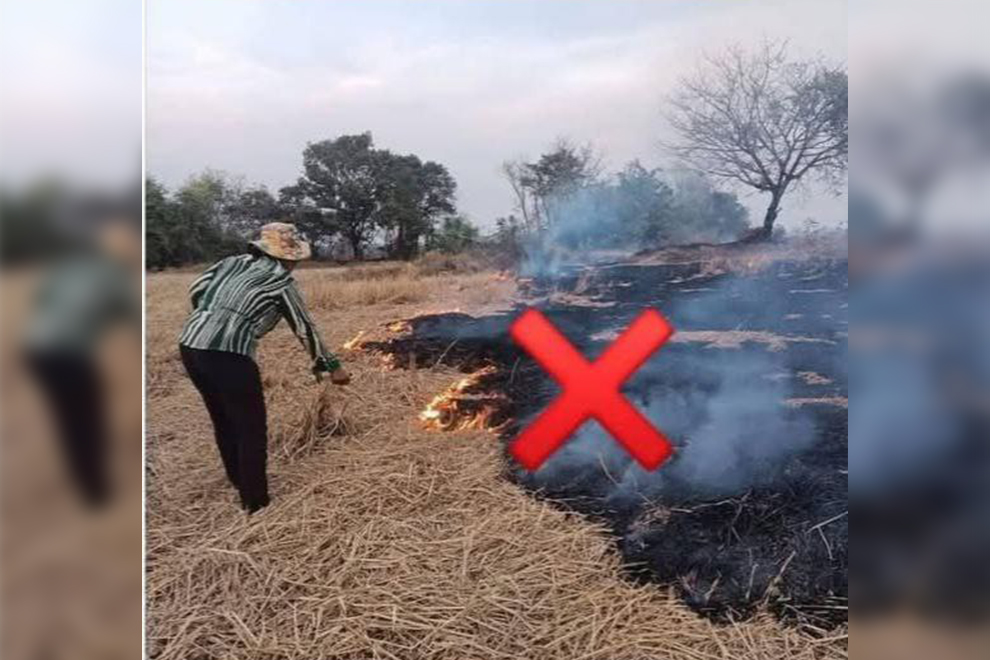
The environment ministry has once again called for an end to widespread burn-off activities, noting that it affects the Kingdom’s air quality. Environment ministry
Forest fires not only cause a decline in air quality but also lead to the loss of biodiversity, forests, and wildlife, with severe damage to local ecosystems.
The Ministry of Environment has called for the public to play their part in preventing the forest fires that are currently occurring in almost every province of Cambodia.
From March 23 to March 29, a total of 482 wildfires were recorded across the Kingdom, with Ratanakkiri being the most affected province (103 cases), followed by Stung Treng (86 cases) and Mondulkiri (57 cases).
Ministry spokesperson Khvay Atitya noted on March 30 that wildfires are a critical issue that require urgent attention and the cooperation of all relevant parties.
He called for local authorities, law enforcement agencies, local and international partners, as well as communities and residents near forested areas, to immediately take action if they discover a fire, to prevent their spread and minimise risks to public health.
“Wildfire smoke increases the concentration of fine particulate matter and toxic substances in the air, degrading air quality, destroying biodiversity and damaging local ecosystems,” he explained.
In response to the fires, the ministry has been working with provincial authorities in protected areas and other stakeholders to conduct awareness campaigns and educate residents on fire prevention measures.
These efforts focus on discouraging activities such as burning trash, agricultural waste and farmland, as these can trigger wildfires. Additionally, the ministry has enforced Directive No. 01 on the Prevention of Public Air Pollution, highlighting that burning waste and wildfires not only harm the environment but also affect air quality, public health and overall living conditions.
“Forests are a natural treasure that must be protected. If a wildfire occurs, we must prevent and contain it — because protecting forests means protecting wildlife, biodiversity and ultimately, our own lives,” he added.
On March 28, the ministry informed the public that recent weather fluctuations and hazy skies had led to misleading claims about the Kingdom’s air quality. The ministry warned that unverified reports from non-official monitoring sources were misrepresenting the real situation.
“As of now, Cambodia’s air quality does not pose a public health risk,” the ministry claimed.
The ministry stated that it operates air quality monitoring stations and mobile equipment across the country, regularly sharing updates via social media, its official website, and the CGS SPA mobile app, which provides real-time air quality data.












